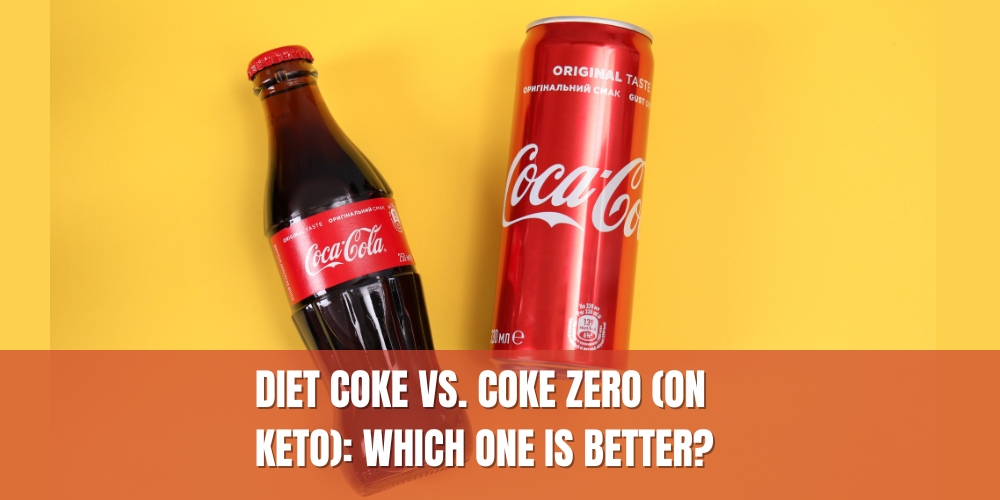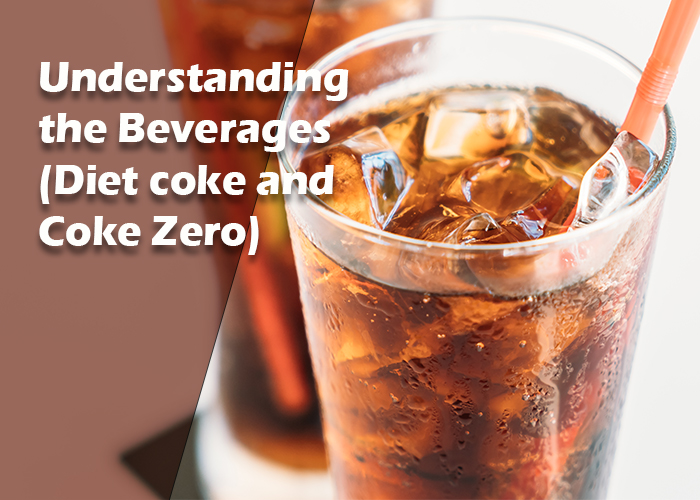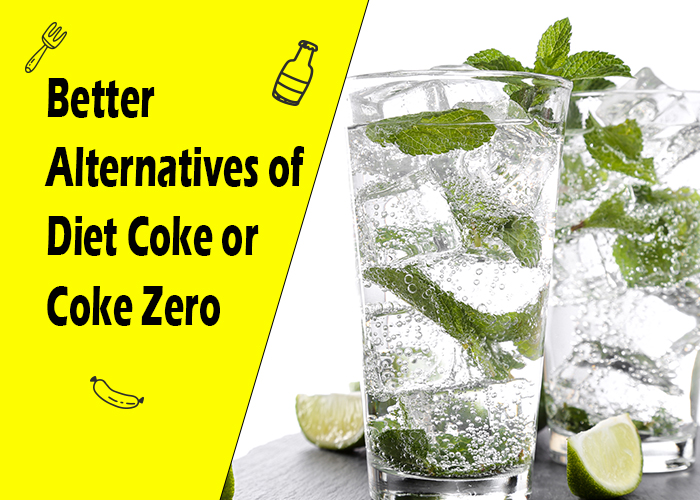Hey, keto crusader! So, you’ve embarked on this epic journey of low-carb, high-fat living, and you’re probably wondering about the perfect soda sidekick to your keto lifestyle. Is diet coke or coke zero better for keto?Diet Coke vs. Coke Zero- talk of the topic.
You see, when it comes to keto, it’s all about that carb game. We need to be carb-conscious, and that includes our choice of fizzy beverages. Both Diet Coke and Coke Zero have their sugar-free options, but which one should you invite to your keto party? Let’s break it down for you.
Understanding the Beverages (Diet coke and Coke Zero)
Ingredients
Diet Coke and Coke Zero are both carbonated beverages that contain caramel color, phosphoric acid, potassium benzoate (to protect taste), natural flavors, caffeine, and the amino acid phenylalanine.
The main difference between Diet Coke and Coke Zero is the type and amount of artificial sweeteners they use. Diet Coke contains only aspartame, while Coke Zero contains both aspartame and acesulfame potassium (Ace-K). Aspartame and Ace-K are both non-nutritive sweeteners that provide sweetness without calories or carbs.
Nutrition
A 12-ounce (355-mL) serving of Diet Coke contains 46 mg of caffeine, while the same amount of Coke Zero contains 34 mg. For comparison, a regular 8-ounce (240-mL) cup of coffee contains about 95 mg of caffeine.
Here is the nutrition information for a 12-ounce (355-mL) serving of Diet Coke and Coke Zero:
| Nutrient | Coke Zero | Diet Coke |
| Calories | 0 | 0 |
| Fat | 0 g | 0 g |
| Sodium | 40 mg | 40 mg |
| Carbs | 0 g | 0 g |
| Sugars | 0 g | 0 g |
| Protein | 0 g | 0 g |
| Caffeine | 34 mg | 46 mg |
As you can see, both drinks have zero calories, carbs, sugars, and protein Therefore, they are technically keto-friendly and can be consumed in moderation on a keto diet.
Taste
Another difference between Diet Coke and Coke Zero is their taste. Diet Coke has a distinct flavor of its own that differs from the original Coca-Cola Classic. Some people describe it as having a metallic or bitter aftertaste.
On the other hand, Coke Zero is formulated to mimic the taste of the original Coca-Cola Classic as closely as possible without the sugar or calories. Some people find it more satisfying and refreshing than Diet Coke.
Ultimately, the taste preference between Diet Coke and Coke Zero is subjective and may vary from person to person. You may want to try both drinks and see which one you like better.
Health Considerations of Diet Coke and Coke Zero
While Diet Coke and Coke Zero are both sugar-free and calorie-free alternatives to regular soda, they are not necessarily healthy choices. They contain artificial sweeteners, which may have some negative effects on your health and well-being.
Some studies have suggested that artificial sweeteners may increase your appetite, cravings, and calorie intake by interfering with your brain’s reward system and hormonal regulation. They may also alter your gut microbiota, which can affect your metabolism, immunity, and inflammation.
Additionally, some people may experience adverse reactions to artificial sweeteners, such as headaches, migraines, mood changes, digestive issues, or allergic reactions. Furthermore, some animal studies have linked artificial sweeteners to an increased risk of cancer, but more human research is needed to confirm this association
Moreover, both Diet Coke and Coke Zero contain phosphoric acid, which can erode your tooth enamel and increase your risk of dental cavities. Phosphoric acid may also affect your bone health by reducing your calcium absorption and increasing your urinary calcium excretion.
Is Diet Coke or Coke ZeroBetter for Keto?
Finally, both drinks contain caffeine, which can have some positive effects on your alertness, energy, and performance. However, too much caffeine can also cause heart palpitations, anxiety, insomnia, jitteriness, dehydration, and withdrawal symptoms. The recommended limit for caffeine intake is 400 mg per day for healthy adults.
All considerations we have discussed earlier. So, the bottom line is if you have to choose between the two, you may want to opt for Coke Zero, as it has less caffeine and a more similar taste to the original Coca-Cola Classic.
However, this is a personal preference and may depend on your individual tolerance and enjoyment of artificial sweeteners.
Better Alternatives of Diet Coke or Coke Zero
A better option for keto is to drink water, herbal tea, sparkling water, or other sugar-free and natural beverages that can hydrate you and provide some health benefits. You can also add some lemon, lime, cucumber, mint, or berries to your water for some extra flavor and antioxidants.
Some Useful Tips
- If you drink several cans of Diet Coke or Coke Zero per day, try to reduce your intake by one can every week until you reach your desired goal.
- Use a journal, app, or calendar to keep track of how much Diet Coke or Coke Zero you drink per day and per week. This can help you monitor your progress and stay motivated.
- Replace your coke intake with sugar-free natural beverages. Sparkling water is the best option for that.
- Drink enough water to stay hydrated and consider it as a substitute as well.
- Set some short-term and long-term goals for reducing your intake of Diet Coke or Coke Zero and reward yourself when you achieve them. For example, you can treat yourself to a movie, a massage, a new book, or anything else that makes you happy.
- You can also join a support group or talk to a counselor if you need more help.
FAQ
Can Diet Coke or Coke Zero Cause Cravings for Sugary Foods?
Answer: Some studies have suggested that consuming artificially sweetened beverages may increase cravings for sweet and calorie-dense foods. While this effect can vary among individuals, it’s essential to be mindful of how these drinks affect your appetite and cravings on a keto diet.
Are Artificial Sweeteners Safe?
Answer: The artificial sweeteners used in Diet Coke and Coke Zero, such as Aspartame and Acesulfame Potassium, are generally recognized as safe (GRAS) by regulatory agencies like the FDA when consumed within recommended daily intake levels. However, individual tolerance can vary, and some people may experience side effects like headaches or digestive discomfort.



